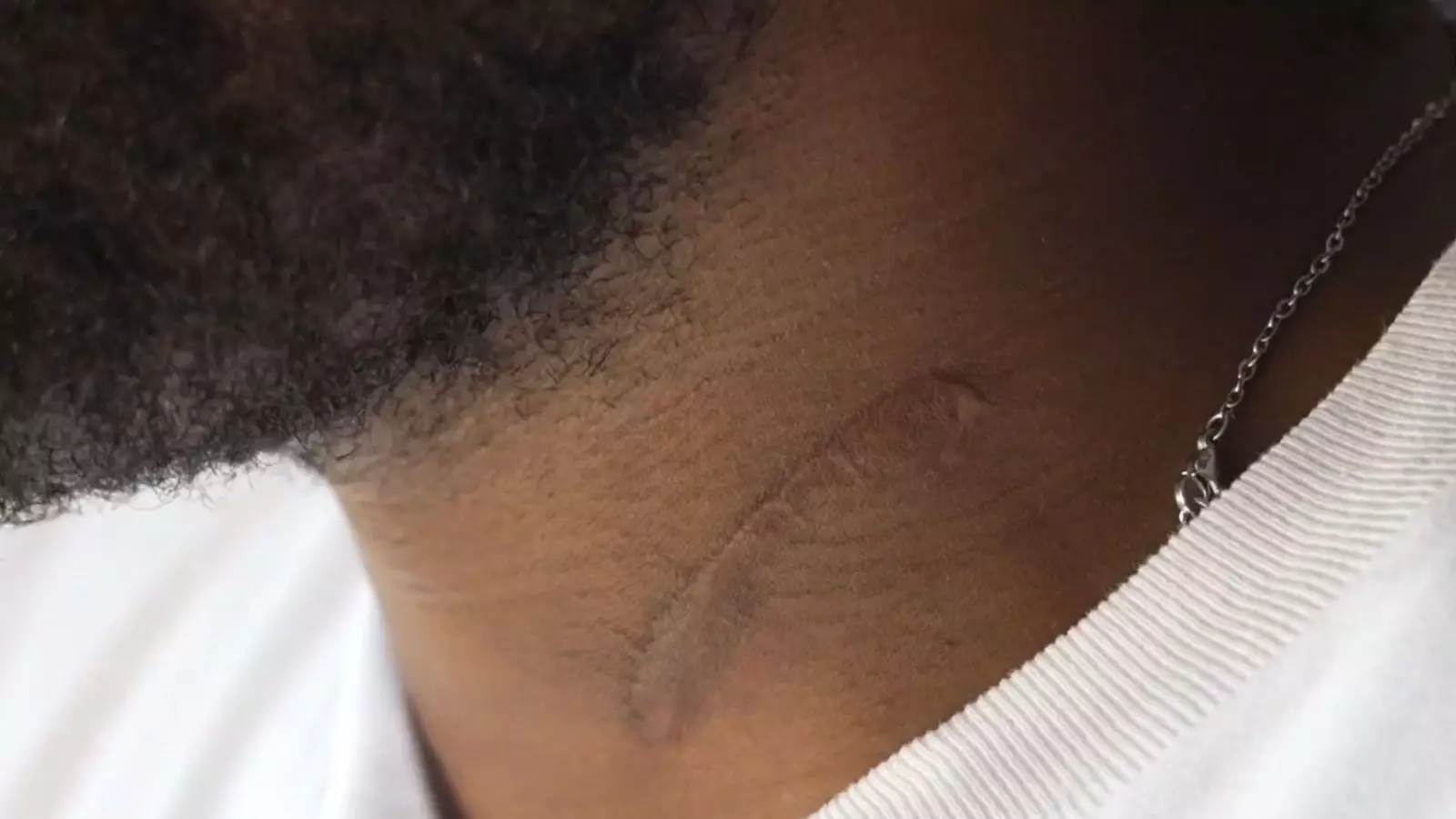The ferocity of a violent attack can leave an indelible mark on the psyche of a survivor. Such is the case with Donato Iwule, a man whose harrowing encounter with Marcus Arduini Monzo, an attacker armed with a samurai sword, will forever haunt him. In an era where violence appears to lurk around every corner, Iwule’s experience is a sobering reminder of how quickly life can shatter. As he recounted the day that spiraled into horror, this middle-class London father emerged not just as a victim but as a symbol of resilience against overwhelming odds.
The events unfolded dramatically, with Monzo’s malevolent energy transforming into a frantic rampage. The initial encounter was surreal. One moment, Iwule was on his way to work, merely a few blocks from normalcy; the next, he was thrust into a nightmare. Amid the chaos, the perpetrator’s chilling prediction, “I’m going to kill you,” serves as a gut-wrenching illustration of premeditated malevolence. Iwule’s instinct to question Monzo’s well-being underscores the confusion and disbelief stemming from such brutal aggression; it is absurd to face someone directly proclaiming their intent to take your life.
Lessons from Trauma
The aftermath of trauma extends beyond physical injuries. Iwule’s description of feeling like he was reliving the event every day reveals an unsettling truth about how violence can fracture one’s mental state. The visceral panic he experienced upon being attacked can resonate with anyone who has ever faced life-threatening situations. It raises a critical perspective: when society fosters ideals of aggression and glorifies violence through the media, what kind of psychological scars do we leave on individuals and communities?
His subsequent fear of leaving his home captures the grip of anxiety that can persist long after the dust has settled. Even as he sought refuge in his mother’s home, the shadows of the past loomed large; sleepless nights became his unwelcome companions. It is vital to consider how these horrific events stir a sense of vulnerability, making ordinary life feel threatening. The normalization of violence, whether through storytelling or cultural narratives, might desensitize us to its devastating impact on real lives, underscoring the urgent need for difficult discussions about how society confronts aggression.
The Legal System’s Role
As Marcus Arduini Monzo now awaits sentencing, one cannot overlook the role the legal system plays in addressing such acts of violence. The emotional weight of a survivor’s testimony cannot be underestimated; it serves as a counterforce to the cold detachment often exhibited in courtrooms. Iwule’s relief upon Monzo’s conviction highlights a collective yearning for justice, not just for the victims but for society as a whole which craves reassurance that justice can be served.
However, the efficacy of the legal system is not infallible. It prompts us to question: How could a sane individual ever reach a point where they feel justified in enacting such brutality? Monzo’s actions represent a deeper societal malady that requires introspection and, perhaps, a recalibration of cultural narratives surrounding violence. As we grapple with these questions, we must also ask ourselves how we can foster understanding, empathy, and ultimately healing in the wake of such tragedies.
The Struggle for Recovery
In personal testimony lies strength; Iwule’s ability to place pressure on his wound from the advice of a family doctor exemplifies the resilience inherent in survival instincts. Yet, recovery is rarely a linear path; it requires a support system and the right mental health resources to navigate the anguish that accompanies trauma. The public discourse should not end with the verdict but must extend to how we support survivors in reclaiming their narratives and rebuilding their lives.
Indeed, the impact of this event lingers far beyond the immediate horror. It’s an appeal for societal change, for embracing the idea that mental health is just as crucial as physical healing. The tales of survival, like Iwule’s, can galvanize a collective push towards better support networks and a violence-free future.
Survivors like Iwule should not merely stand by while society tries to process these tragedies; rather, they should be at the forefront of discussions on policy and prevention. Their voices are powerful, and their stories, potent reminders of the ongoing battle against senseless violence.


Leave a Reply